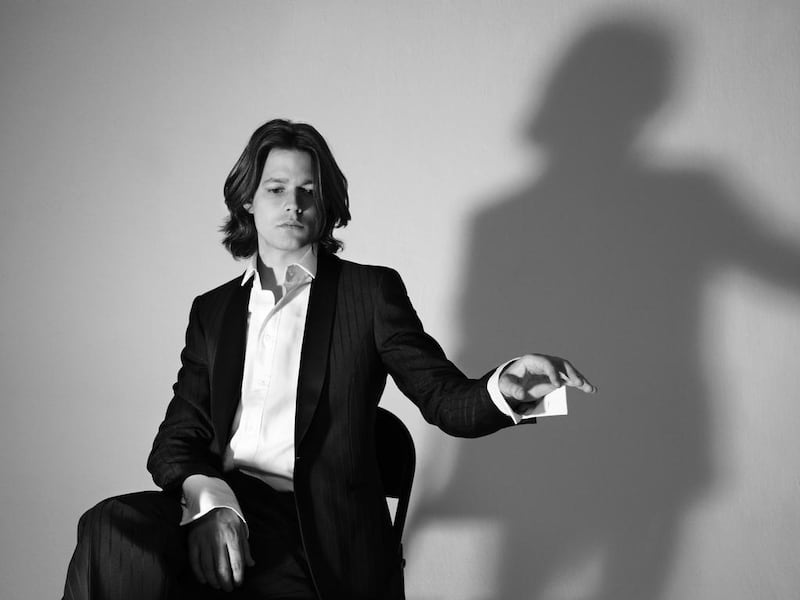There was a time when acclaimed French pianist David Fray was known for his “eccentricity” on the keys.
During performances, his body would contort, his boyish fringe flopping about wildly.
These days, reviewers note a more stern onstage demeanour, with the 35-year-old rarely cracking so much as a smile.
While most concert pianists train themselves to progressively add a touch of theatrical flair to their performances, Fray has been working on the opposite.
“For many, many years I suffered every time I watched a film about me, because my face was too expressive – it was difficult for me to control the visual side of my playing,” he recalls.
“I notice that the audience is sometimes distracted by what you give visually – because of that they cannot listen as carefully as they should.”
By his mid-20s, Fray was a star performer – voted Newcomer of the Year by the BBC Music Magazine in 2008 – with a reputation built on generation-defining recordings of Bach's best-loved keyboard works.
Swing, Sing & Think, a feature-length documentary about Fray directing the Deutsche Kammerphilharmonie Bremen during the recording of three Bach piano concertos, is responsible for much of his reputation for eccentricity. It led to inevitable comparisons with the late Canadian pianist, and fellow Bach expert, Glenn Gould. "It was flattering," says Fray, with a sigh, "but he [Gould] was not a model for me. I was utterly not inspired by him."
Such showboating has been at least kept partially in check during Fray’s recent exploration of chamber music, most notably alongside violinist Renaud Capuçon. The duo will perform together at Manarat Al Saadiyat tomorrow as part of Abu Dhabi Classics. “It’s very good for the ego,” says Fray of sharing the spotlight with his compatriot. “But more than this, it’s very good for the ears.”
He suggests the difference between playing solo or in a duet is equivalent to the difference between an actor reciting a monologue or performing a dialogue with another person.
“If you play by yourself, you have the risk of being a bit selfish,” says Fray. “In chamber music, that’s impossible. You cannot be good alone – you have to be good together.”
And this pair are certainly good together. Each a recognised soloist who could fill venues with just one name on the ticket, since their first performance together three years ago, they have been praised for their poetic interplay.
For their Abu Dhabi show, they will perform four familiar violin sonatas from two titans of classical music.
The evening will open with Bach's Violin Sonata in F minor, before switching to the major key for Beethoven's Violin Sonata No 5 (the Spring Sonata in F major).
After the interval, the audience will hear Bach's Violin Sonata in C minor and Beethoven's Violin Sonata No 7 (also in C minor).
With Bach’s baroque work, Fray is on familiar territory, while Capuçon chose Beethoven.
The pianist’s recorded repertoire has also included Schubert and Mozart, but he has historically chosen to avoid the showy pyrotechnics of the romantic-era virtuosos – Chopin, Liszt, Rachmaninoff – on which most piano stars build their reputations.
This is set to change with his next album, due for release on February 17, which is a Chopin collection – the first time pianist has revisited the Polish master’s works since his time at the National Superior Conservatory of Paris.
“Chopin, for me, was always a problem at the beginning,” says Fray.
“It was too much connected to the instrument – my goal was always to try to go much beyond the instrument itself.”
However, a recent interest in Italian opera – along with Bach, a key influence on Chopin – inspired Fray to force himself to attempt this rite of passage for pianists, by leaving Chopin scores on top of his piano as a taunting reminder.
“Every week, I tried to see how it sounded, what kind of solution I could find, if I found a good way into this music or not,” he says.
The new album is the result of these labours. Simply titled Chopin, it is an eclectic collection of Fray's favourite solo works: seven nocturnes, three mazurkas, a polonaise, a waltz and an impromptu. The pianist is not yet sure whether this marks the beginning of a new journey into romanticism, or a one-off diversion, but he admits to "very much enjoying" his recent first live performances of the repertoire.
Fray says his goal is always the same when performing, whatever the piece to “produce the same shock of beauty” felt on his first hearing of the work.
“That’s my only goal,” he adds. “I don’t care about people thinking I’m good or not good, I just want them to feel the violence of the beauty – because beauty sometimes, when it’s so strong, is not something comfortable. It’s something that can bother you in your own certainties and comforts.”
• David Fray and Renaud Capuçon perform at Manarat Al Saadiyat, Friday, January 20 at 8pm, as part of Abu Dhabi Classics. Tickets from Dh80 (Dh30 for students). For more details, visit abudhabiclassics.ae
rgarratt@thenational.ae





